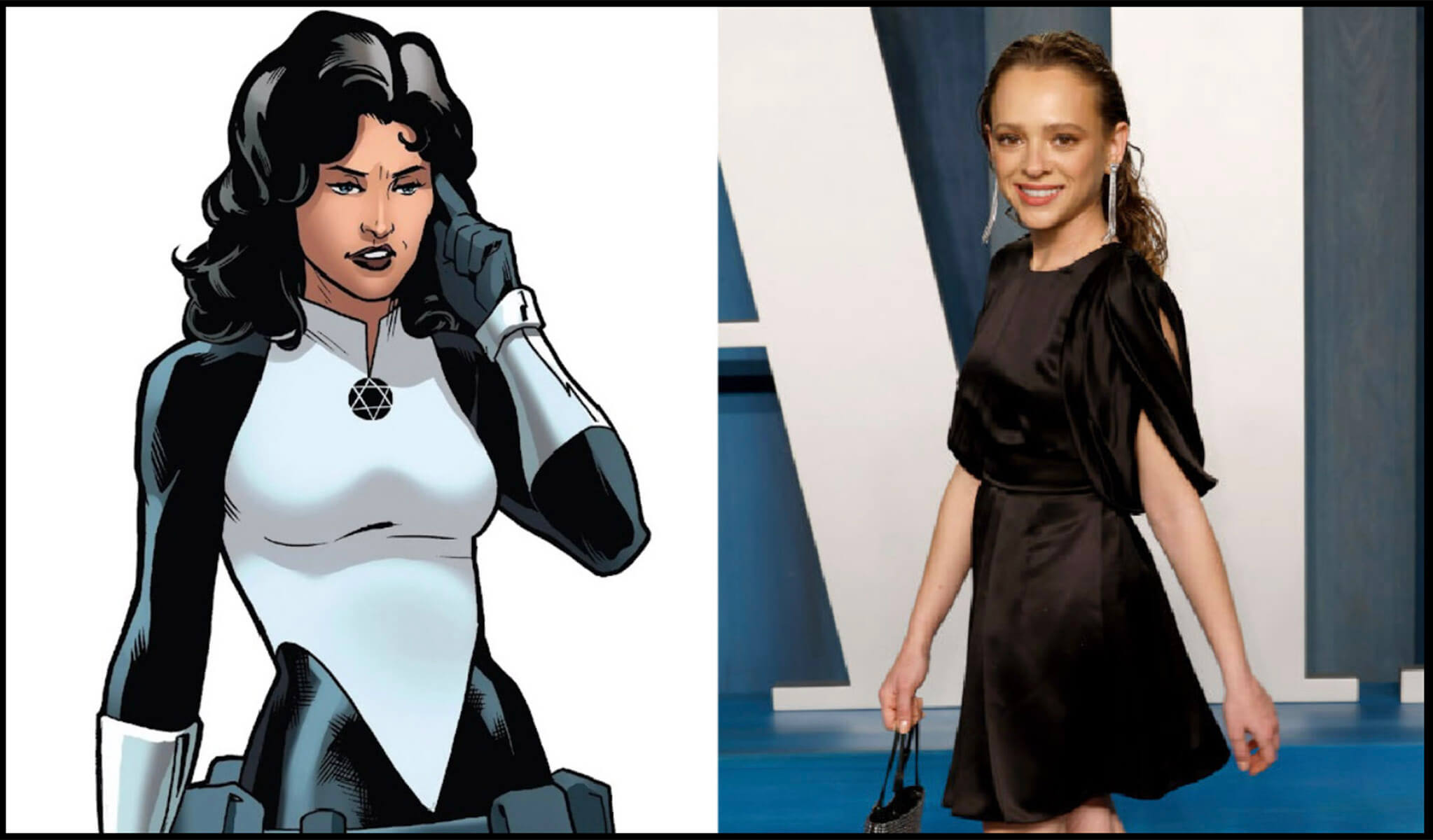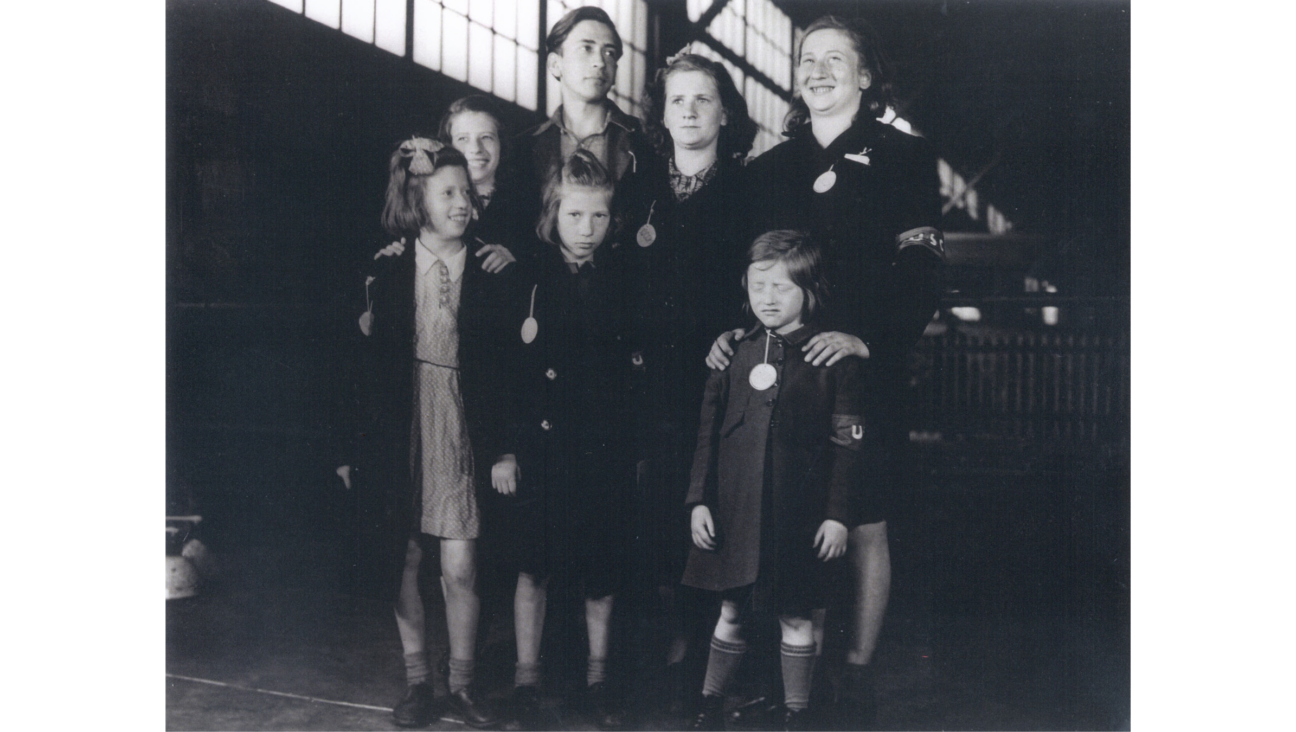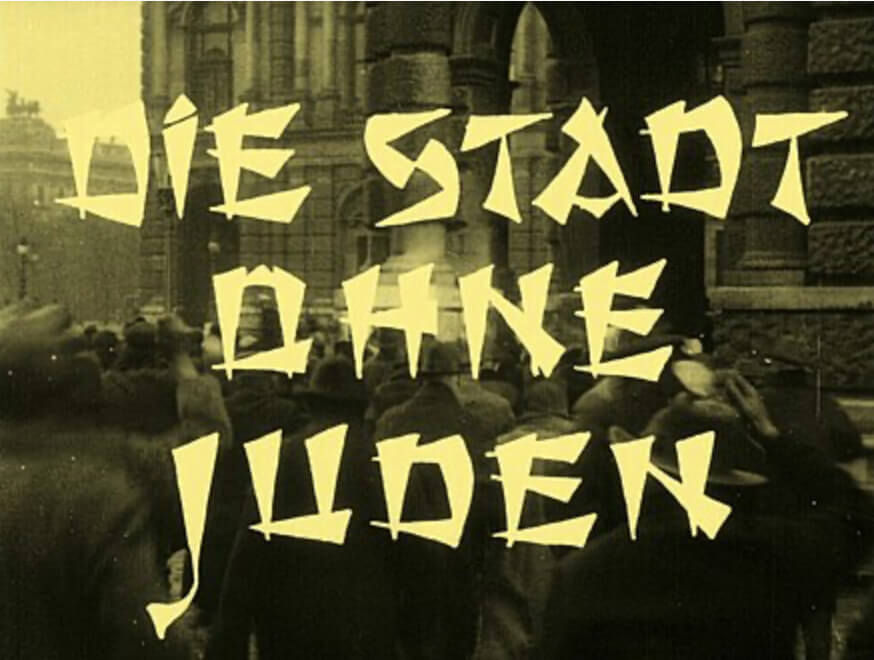Who is Sabra, Marvel’s Israeli superhero?
Shira Haas will star as MCU’s Israeli answer to Captain America – people have opinions

Sabra (aka Ruth Bat-Seraph) and Shira Haas Image by Getty/The Forward
Marvel Studios willed it; it is no dream.
With the announcement of Shira Haas as the deep-cut superhero Sabra in the forthcoming “Captain America: New World Order,” Israel is now a part of the Marvel Cinematic Universe. It was a move I certainly didn’t see coming, but, once the casting news hit Variety, I braced myself for a torrent of controversy amid the excitement of pro-Israel voices.
Controversy because Israel is almost always controversial on the internet, and comic book movies in particular have recently proven to be a major battleground in the so-called “culture wars.”
Fans of Marvel — the comics and the juggernaut media empire — are, in a word, passionate. Many bristle over efforts at inclusion or, more recently, the choice to show She-Hulk twerking with Megan Thee Stallion in a mid-credits scene. But Sabra, a kibbutznik mutant working for the Mossad, offers a window onto a more geopolitically-minded segment of Marvel’s fandom.
Even as the MCU has made efforts to stare down institutionalized American racism and overreach of government surveillance a la the Patriot Act, many still view these movies and shows as little more than military propaganda. (The studio has, in fact, partnered with the military quite a bit.)
The introduction of the Israeli counterpart to Captain America, whose comic origins tie her directly to the Jewish State’s intelligence agency, is raising eyebrows. It’s scarcely surprising, given how over at DC the mere casting of Gal Gadot as an Amazon from a fictional island generates perennial outrage.
A critic on Twitter wrote that Sabra’s powers will include “demolishing Palestinian homes with her mind.” Many others noted how Sabra’s debut, in an issue of “The Incredible Hulk,” featured the killing of an Arab child (the word “Palestinian” is never used) so that Sabra can have a teachable moment. As we delve into the controversy a little more, let’s start there.
Who is Sabra anyway?
Sabra is the alias of Ruth Bat-Seraph. She was born outside Jerusalem and, once her powers manifested, was relocated to a state-run kibbutz to foster her abilities under government observation. She has bulletproof skin, wears an antigravity cape and, obviously, knows Krav Maga.
She first shows up in 1980’s “Incredible Hulk” No. 256 “Power in the Promised Land!” She mistakenly believes that the Hulk is working with terrorists and the two fight. In their final confrontation, the Hulk cradles the body of Sahad, an Arab boy he befriended who was killed in an explosion caused by terrorists. The Hulk then lectures Sabra about the toll of the ongoing conflict.
“Boy died because boy’s people and yours both want to own land!” the Hulk yells. “Boy died because you wouldn’t share!” (Remember, this is the Hulk talking.)
What makes the Hulk even angrier is that the crux of the conflict is because of “two old books” (i.e., the Quran and Hebrew Bible) and “now boy is dead — but boy didn’t even read books!”
Many online have rightly noted how Sahad, who first tells the Hulk about the “two old books,” is a racist depiction of a Palestinian kid. He is illiterate, steals and lies to tourists for money. The only other sort of Palestinians the issue shows are terrorists. If this is indeed the nuance we can expect from Sabra’s corner of the world in the MCU, there’s reason for concern.
In the heavy-handed conclusion, we see Sabra, kneeling by the corpse of a Sahad as a text box explains how while she is an “Israeli super-agent … a weapon of war” she is also a “woman capable of feeling.” (Yikes.) We’re also told that it is because of the Hulk that she is able to see “this dead Arab boy as a human being.” (Double yikes.)
But Sabra has had a few decades to develop and she has gone on other adventures — helping to keep the son of an ambassador to Israel from turning into the next Adolf Hitler; becoming an advocate for mutants; even working alongside a Palestinian teammate called (sigh) Arabian Knight.
Overall, she’s a pretty minor character with just 50 appearances and it’s far too early to tell what her role in the new film may be.
What’s in a name?
One development of the social media chatter I wasn’t expecting was people implying, or outright claiming, that Sabra’s name is derived from the 1982 Sabra and Shatila massacre, which began 40 years ago this month. The massacre occurred in the Sabra neighborhood and the Shatila refugee camp in Beirut when Israel’s allies, the Christian Phalange, murdered between 400 and 3,500 Palestinians and Lebanese Shiites.
At the time, the IDF controlled the territory and did not act to stop the Phalangists. The Israeli government subsequently formed a commission that found the IDF indirectly responsible and recommended the resignation of senior officials.
While the timing of Sabra’s announcement so close to the date of the anniversary could be upsetting, it’s wrong to say that she is named for this tragedy. The massacre occurred years after Sabra debuted. In her first appearance an editor’s note explains that, as you may have suspected, she is named Sabra for the moniker given to Israeli-born Jews, “the name derived from an indigenous form of fruit — a prickly pear possessed of a sweet interior, and a spiny outer surface to protect it from enemies.”
She’s no more named after the place where a horrific massacre occurred than Corona beer is named for a deadly virus.
At the same time as some have glommed onto possible double meanings for Sabra’s name, others are suspicious that Jewish actor Tim Blake Nelson is reprising his role as “The Leader” in a film subtitled “New World Order,” a durable conspiracy theory anticipating global domination that has a regular theme of Jews running world affairs.
We don’t yet know if Sabra is a part of that New World Order or an ally of Sam Wilson’s Captain America.
Was Sabra plagiarized from an actual Sabra?
An Israeli cartoonist named Uri Fink, who, in 1978 created a character named “Sabraman,” told YNet that the character of Sabra is based on his superhero. (He said he won’t sue, as he doesn’t have the means.)
The character’s costume could look less like Sabra’s, but, then again, the costume just sorta looks like an Israeli flag.
“I don’t predict her portrayal in Marvel will be positive in woke days such as these,” Fink told Ynet, and, in an interview with Channel 12, characterized the people who work at Marvel now as “progressives.”
It should be noted here that the chair of Marvel Entertainment, the Israeli-American businessman Ike Perlmutter, was a major donor to Donald Trump.
Hasbara, or something else?
It’s way, way too soon to tell what role Sabra will play in the next phase of the Marvel movies, but given the way she was introduced, I imagine she will be a somewhat conflicted character, if one whose comic provenance ties back directly to the IDF.
In a Twitter thread, Simcha Gross, a professor of ancient Jewish history at the University of Pennsylvania, used Sabra’s debut to explain how comics often fall into the snares of stereotypes and absolutist readings of complex situations.
But Gross concludes that this deeply problematic comic also was a product of its times, reflecting “the mainstreaming of a more symmetrical view of the conflict in the U.S., in which Israel is not by default in the right, and in which both sides boast equal claims to the land & may also be equally accountable for the conflict’s perpetuation.”
If even a comic book grasped this subtlety, in reflecting the prevailing opinion of the moment, there’s no reason to believe that Marvel, skewered as woke by some and hawkish by others, wouldn’t also incorporate how people think about the region now. I would be shocked if this were purely Israeli military propaganda that didn’t reckon in some way with the plight of Palestinians. (Remember, the MCU devoted an entire multi-film arc to addressing civilian casualties caused by superpowers.)
While some will always balk at the idea of featuring an Israeli superhero at all, this may, in fact, not be where much of the world is at, even as many rally behind BDS. That said, it’s more than likely the film will face a ban in the Middle Eastern countries that have yet to normalize relations with Israel.
Even after the Abraham Accords, don’t expect Haas to be walking a red carpet in Saudi Arabia for the premiere. That new world order is still out of reach.
A message from our Publisher & CEO Rachel Fishman Feddersen

I hope you appreciated this article. Before you go, I’d like to ask you to please support the Forward’s award-winning, nonprofit journalism so that we can be prepared for whatever news 2025 brings.
At a time when other newsrooms are closing or cutting back, the Forward has removed its paywall and invested additional resources to report on the ground from Israel and around the U.S. on the impact of the war, rising antisemitism and polarized discourse.
Readers like you make it all possible. Support our work by becoming a Forward Member and connect with our journalism and your community.
— Rachel Fishman Feddersen, Publisher and CEO






























